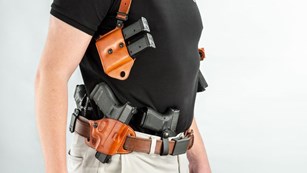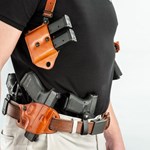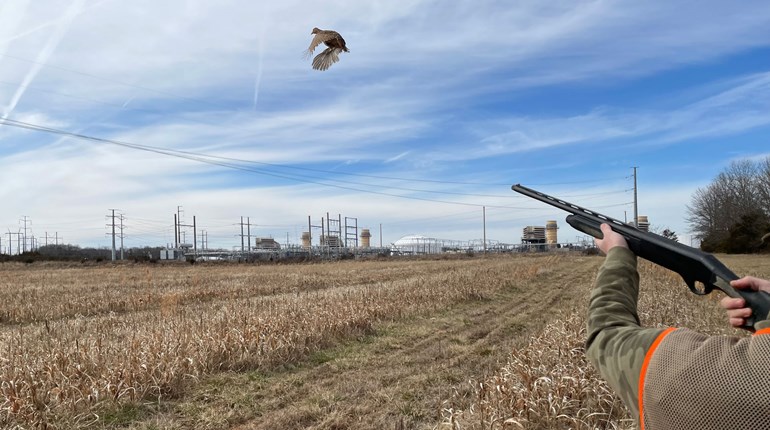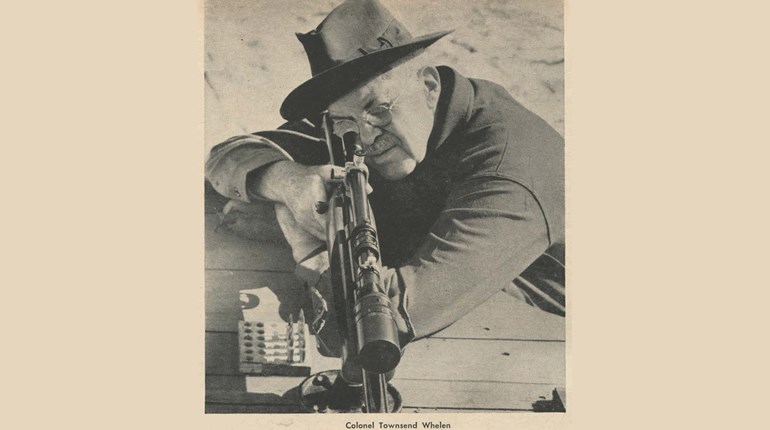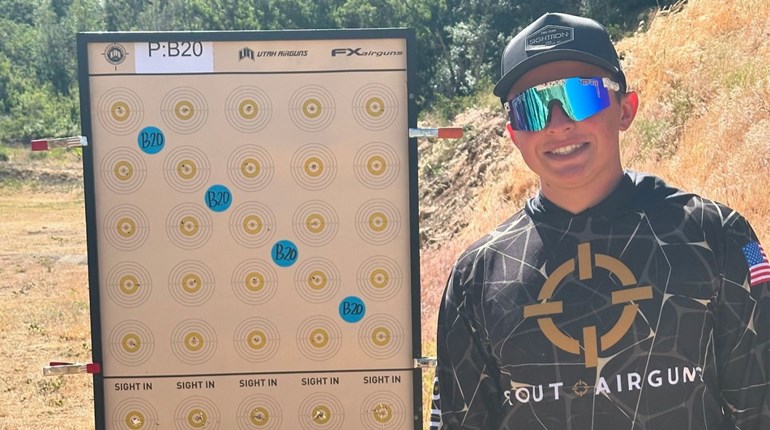
An acquaintance of mine posted a target of his on social media from a recent range trip, and there was no rhyme or reason to the shots on the target. There were no groups, no patterns, nothing that we would associate with marksmanship. When I asked him was going on with his target, he insisted that he was “a good shot” and that “he could shoot.”
His target, however, told me something else.
Inspired by this, I interviewed three prominent firearms trainers and asked them what they would say if they saw someone who insisted they were a good shot when their targets were saying something else. The firearms trainers I interviewed were revolver guru and author Grant Cunningham, Melody Lauer of Citizens Defense Research and Claude Werner, the Tactical Professor. Each of them has a different philosophy of training, and their answers reflected a wide range of opinions and insight.
Question #1: Who should get firearms training?
Melody
I recently read an article in the Washington Post that quoted a survey from 2014 which said that there were 116 guns in the United States for every 100 people. With that amount of guns out there, the chances of you having to interact with a gun at some point in your life are quite high, no matter if you actually own a gun or not. Therefore, taking a firearms training course of some kind seems like a good idea to me.
Claude
The broadest answer is, of course, that everyone should get training. The reality is, however given the current amount of gun owners and available firearms trainers, it would take years and years to train all the gun owners out there. The NRA is in a good position to get this done because their pre-course evaluations and Marksmanship Qualifications are a great way to help people effectively defend their lives with a firearm.
Grant
Anyone who has a firearm for the purposes of self-defense (shotgun, rifle, whatever). There's a lot that goes into using it, like knowing when you legally can and should use it. Doesn't matter if you're old or young, female or male (men are bad at this). There are three parts to gun safety awareness: How to make the gun go bang; when you can make it go bang; and when you should make it go bang.
Question #2: What do you say to people who say “I already know how to shoot”?
Melody
It’s tough to train people who say “My friend was a cop, and he taught me how to shoot,” or “I know how to shoot, I was in the military,” but how does that experience translate to how we live our lives? I’ve found that a good way to get people thinking about this is to ask them questions about what training they received in the military or at the police academy, and then ask them how they feel that integrates into society. All of this, though, should be done in a way that is respectful of the tremendous sacrifices made by our military and police forces.
Grant
Knowing how to make it go bang is the easiest part, but do you know how to do it when your body is affected by the desire to stay alive? No one is born with the legal knowledge of when to pull the trigger and the proper judgement of when to use a gun: Society and culture teaches us those things, and society at large makes a lot of incorrect judgments about that...such as shooting to defend property, "warning shots," etc.
Claude
Can the potential student put five shots into a 4-inch circle, four times in a row, at 10 feet? That’s the standard for the NRA Basic Pistol class, and it’s a good way to help people understand that they probably need to improve their marksmanship skills.
Question #3: What should students expect in a beginning defensive pistol class?
Melody
We’re not doing a good job of defining what “beginning” is: Most “beginners” classes are, in reality, nothing but extended firearms safety classes, and don’t prepare students for the reality of concealed carry. There’s a big need for “beginners” classes that include tips that are tailored to the student's lifestyle: Not everyone is going to carry a Glock 19 outside the waistband, and instructors need to realize that fact and adjust their training accordingly.
Grant
I structure a beginning class so that if a student had to leave a class right in the middle of teaching, they should have a level of defensive skill that they didn't have before they walked into class. Learning should start from the very first hour and build upon that. Start with a decent grip on the pistol, how to extend the gun out with two hands towards the target, and how to put multiple hits into the center chest in short amount of time. Then we expand those basics out in all directions to cover a variety of different situations, such as drawing and shooting, and moving and shooting.
Claude
Students should expect that the instructor with be able to personally demonstrate what the students are expected to learn in the class, and receive answers to their questions about the principles behind the safe handling of guns and how to improve their marksmanship. They should also have an understanding of where they stand in their marksmanship skills, and leave the class with some exercises what will help reinforce what was in class and help them get even better.
One thing that Melody, Grant and Claude have in common is that while all three are some of the most prominent firearms trainers in the country, all of them take time to learn how to be better shots and improve their teaching abilities. These three trainers, who all “know how to shoot” make it priority to learn how to get better at shooting. If some of the top trainers in the world see a need to get better at shooting, what’s holding you back from taking a lesson?
Editor's Note: Looking for basic gun training? A list of NRA instructors and courses near you can be found here!









